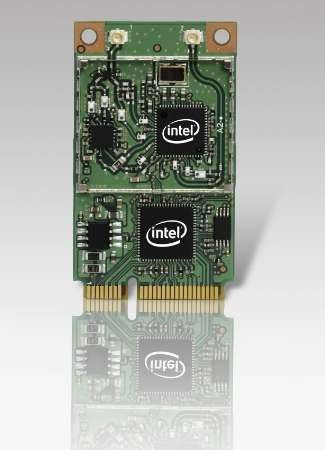Tech Gloom: If Prospects are So Bad, Does that Signal the Sky is Falling?

President Obama had it right when he said, These are difficult years for our country, when he addressed Congress about job creation. It looks as if the economy is easing its way into another recession, or maybe never entirely exited the last one.
No sector appears immune, including technology, which is supposed to be the source of future prosperity.
Look at the technology industry -- chips, PCs, networking equipment, consumer electronics and production equipment -- and you see signs that the pace is slowing down. In the past three months, chip stocks have fallen 16 percent, the Nasdaq 100 Tech Index is down 11 percent and the iShares Goldman Sachs Tech Index is off about 1 percent.
Unless the economy is about to turn up, the stock markets are sending a danger signal.
Just about the only sector predicted to skyrocket this quarter and next is smartphones and tablets -- or basically, Apple iPhones and iPads. Market researchers IHS estimates smartphone sales will soar 64 percent to 478 million units, while tablet sales triple to 60 million.
That's good news for Google and Android makers and just about anyone else with a cool rival to the iPad, but it's bad for Silicon Valley. And it hurts investors. The only reason they buy tech stocks is for their total return. It's also why companies like Zynga have already filed IPOs. Even Zynga's IPO, filed July 1, is aging, waiting for a better market.
Here are some more sour signs of the weakening prospects for technology:
Chip orders and demand are easing. The Semiconductor Industry Association reported July sales of only $24.9 billion, the same as June. Full-year growth was trimmed to 5.4 percent vs. last year's 32 percent jump. The three-month moving average was minus 1.8 percent.
Apple last year became the world's biggest chip buyer.
But some vendors are hurting. Texas Instruments, the biggest maker of chips for mobile phones, lowered its earnings predictions. Just in general, we're seeing broadly lower demand across our product lines, said VP Ron Slaymaker this week.
There are design wins and it's well-known that TI chips are in Apple's iPhones as well as most rivals. But TI sees broad-based weakness, Slaymaker said.
Previously Freescale Semiconductor said third-quarter orders for automotive chips had eased, a period when Detroit ought to be shifting to 2012 model year production. Freescale is Detroit's biggest supplier, followed by National Semiconductor, which is being acquired by TI.
Network equipment orders are tapering off: Earnings reports throughout the networking sector are also ominous. Market leader Cisco Systems reported solid earnings, but CEO John Chambers acknowledged orders from the public sector have gone away. So have smaller rivals like Ciena and Juniper Networks.
CEOs like Juniper's Kevin Johnson said is more cautious now because it doesn't expect robust orders for the second half, which in most years accounts for 55 percent of revenue.
Cisco, once the world's most valuable company, has seen its shares slide 22 percent this year. While it ought to benefit from shifts to cloud computing from Apple, Amazon and IBM, this tech giant ought to be doing better.
PC orders are slowing: Both HP and Dell, No. 1 and 2, reported slower-than-expected growth. HP decided to exit the sector. In Taiwan; Acer, No. 4, reported a $236 million loss as second-quarter sales plunged 32 percent to $3.5 billion.
Only China's Lenovo Group, No. 3, reported solid net income and growth, mainly because of higher demand from China and developing countries. It's also jumped into the tablet sector with its ThinkPad brand.
Aside from the Apple phenomenon, the PC makers usually expect solid gains in the second half from the consumer, education and corporate sectors. It's when they make all their money for the year.
Another omen: Gartner anticipates full-year PC shipments to grow a meager 3.8 percent, to only 364 million. And it notes that Generation Y buyers have an altogether different view of client devices than older generations and may skip straight to a tablet or smartphone.
Tech equipment orders are falling. If chip demand is easing, why buy new equipment? That's the dilemma faced by Applied Materials, the No. 1 supplier of chipmaking machinery to Intel, Texas Instruments, Taiwan Semiconductor Manufacturing and others.
Why buy a new line for $250 million and more if there's a sign of recession? Applied Materials CEO Michael Splinter described consumer electronics orders as disappointing and lopped $1 billion off an earlier order estimate for wafer fab spending by customers for the year. Consumers bought fewer TVs and PCs.
As a result, Applied Materials shares have lost 24 percent this year. It has some insurance: Even in the worst recession, chip customers order new equipment for next-generation devices.
Consumers may ease off holiday electronics sales. And that could even hurt Apple, despite the hoopla surrounding iPhone5 and a new iPad. Analysts like Peter Misek of Jefferies expect lower back-to-school MacBook sales and Splinter, the Applied Materials CEO, already said orders for new TV displays aren't great.
Unlike past practice, analysts expect Apple to keep shipping iPhone4's as it ships iPhone5's, keeping the older models priced lower for consumers who want a cheaper unit and don't believe they have the cash for the latest model. The tactic may also be a means to compete with other new products, notably whatever tablet Amazon introduces. HP's TouchPad fire sale proved there's a demand for electronics at a discount.
The Consumer Electronics Association Index of Consumer Technology Spending rose 4 percent last month and is about 4.6 percent ahead of 2010. But consumer confidence in the overall economy dropped slightly to 158.8, the lowest level in a year.
© Copyright IBTimes 2024. All rights reserved.






















